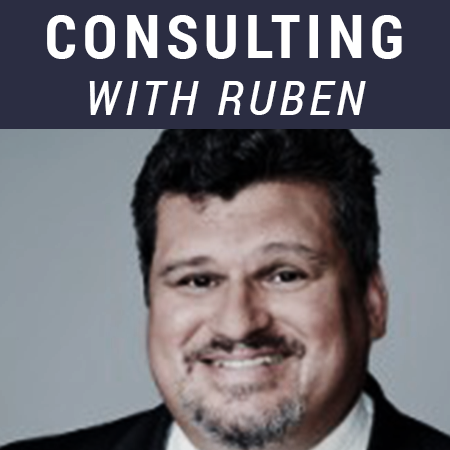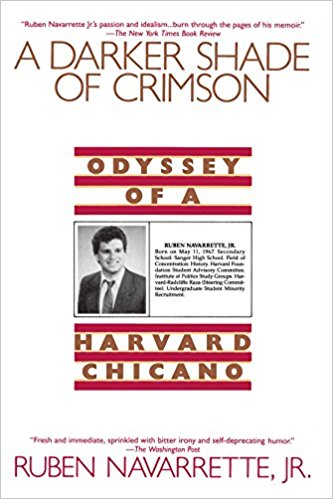I’ve spent several weeks thinking about what my faith means to me, and — fueled by the curiosity of a nosy journalist — trying to get others to tell me what theirs means to them.
I haven’t always been successful in the latter. Even in our “share all” society, a lot of people don’t feel comfortable talking about God and religion.
That’s interesting, right? My parents’ generation was raised with the admonition to not discuss two things in polite company: politics and religion.
Nowadays, Americans won’t shut up about the first one, but they can still be tight-lipped about the second.
Still, I’ve taken in everything I could — and looked inside my soul. And now, as I spill it on the page, I remember to start with the words of the Prophet Paul (McCartney):
“When I find myself in times of trouble
Mother Mary comes to me
Speaking words of wisdom
‘Let it be’
And in my hour of darkness
She is standing right in front of me
Speaking words of wisdom
‘Let it be’ ”
McCartney has said that the inspiration for “Let It Be” came from a dream he had in 1968 about his mother who died when he was a teenager. He has said that the reference to “Mother Mary” was not intended to be biblical, but also repeatedly made clear that his fans can interpret the song however they like.
Wherever that dream — and those words — came from, I think we’re all clear on where McCartney got his gift for songwriting.
And so, his words ring true to me because I’ve lived them. In my hour of darkness, I reach out and Mother Mary is standing right in front of me.
It wasn’t always that way. I’m what they call a cafeteria Catholic, in that I don’t follow all the rules.
That’s not ideal, but it’s also not surprising when you consider that I didn’t get off to a very good start. My parents did a great job of raising my brother, sister and me — with one exception. They didn’t take us to church. I went to catechism, made my First Communion, and that was about it.
My wife had a similar experience growing up in Mexico. And we’ve decided that we want something better for our own children. So we do go to church — at least some of the time.
I know that I should go to church more regularly — and that I should try to be closer to God in good times and bad times. But I also know that God is patient, and he certainly has been with me as I try to find my way.
And I always seem to try hardest when I’m in the dark fumbling around for a light switch. When I think back at the times over the last 20 years where I’ve sought comfort in Catholicism, they were the hardest days.
Days like the ones that Americans are living through now. On Ash Wednesday of this year, Nikolas Cruz walked into Marjory Stoneman Douglas High School in Parkland, Florida, with an AR-15 and killed 17 people — including 14 students, one teacher, two coaches — in addition to wounding 15 others.
The troubled 19-year-old restarted the national debate over school violence, gun control, mental health and alienated youths.
And days like the ones we lived through in the aftermath of Dec. 14, 2012, when 20-year-old Adam Lanza entered the grounds of The Sandy Hook Elementary School in Newtown, Connecticut.
Armed with his mother’s Bushmaster XM15-E2S rifle, Lanza fatally shot 20 children and six adult staff members, before killing himself. The youngest victims were between 6 and 7 years old, and the makeshift shrines that popped up at the site of the atrocity were full of teddy bears.
And, of course, days like the ones after Sept. 11, 2001, when radical Islamic extremists plowed jetliners into the World Trade Center and the Pentagon, killing nearly 3,000 people and wounding another 6,000. The attacks served to put Americans on notice that they were — whether they knew it or not — at war with terrorists who despised the West.
After each of these events, I couldn’t wait to go to Mass. In each case, I went because I was hurting, confused and enraged. I went looking for answers and a better understanding of what motivates people to commit acts of evil. I went for support, and a sense of community with kindred spirits.
In fact, on the day of the September 11 attacks, I was living in North Texas and writing for the Dallas Morning News. And, within hours of the planes hitting the buildings, my friend Tim O’Leary — a fellow journalist and fellow Catholic — and I were taking a long walk through downtown Dallas to the Cathedral Shrine of the Virgin of Guadalupe.
The place was packed, and the parishioners included what seemed like an unusually high number of Spanish-speaking Latino immigrants. Everyone crying and praying, aware that the world had changed forever.
In the days after the Sandy Hook massacre, as with most parents of young children, my heart was breaking. I hurriedly dropped my kids off at Sunday school, not expecting to go inside the church. But at the last minute, I veered into a parking space, got out of my car and went inside. I sat in a pew in the back by myself, and hung on every word of the sermon desperate to make sense of a senseless act.
I also go to church in what McCartney called “times of trouble” because I want to feel God’s warm embrace.
That’s not just a phrase for me. I’ve actually felt it. About 25 years ago, I was in a car accident on a country road near my hometown in Central California. I sent my jeep over a cliff and crashed to the ground about 50 feet below.
And, as I was flying through the air, I remember two things — hearing my mother’s voice utter her familiar phrase about how “material things can be replaced” and feeling as if some gigantic force was cradling me to cushion the impact.
I was rescued from the wreckage and loaded into an ambulance, but I was eventually released from the hospital with minor injuries.
Sometimes, trouble finds me not through a national tragedy but through a profound personal loss.
For Latinos, death is not this dark point of no return. It’s just a curve in the road on a journey into the afterlife. We take comfort in our faith that, one day, we’ll all regroup at our “abuela’s” table and swap stories over her legendary chile colorado, refried beans and homemade tortillas. Already seated: all four grandparents, six uncles, two aunts, two cousins, a childhood pal, a college roommate.
I grieved for them all. But one of the people at the table holds a special place in my heart. She’s the little girl who first made me a dad even if she was only in my arms for about an hour before the Lord called her to his side.
It’s obscene for parents to have to bury their children. And those who do it belong to a club that no one wants to join. Nothing that my wife and I have experienced since compares to the pain we felt then — and still feel today.
It’s what Bruce Springsteen might have described as pain that “rips the bones from your back.” And you never fully recover.
Though I felt alone, God has been with me at those moments.
It’s one of the reasons I’ve always loved that immortal poem that talks about “footprints in the sand.” Originally written by a woman named Mary Stevenson in 1936, and rewritten by others since then, it tells the story of someone who dreams that she is walking on a beach with the Lord.
She notices that, while there were two sets of footprints through much of her life, this was not always the case.
The poem ends this way:
“I noticed that during the saddest and most troublesome times of my life, there was only one set of footprints. I don’t understand why, when I needed You the most, You would leave me.” He whispered, “My precious child, I love you and will never leave you. Never, ever, during your trials and testings. When you saw only one set of footprints, it was then that I carried you.”
Right about now, some of the folks in this, my neighborhood coffee shop, are probably wondering why the big guy at the corner table is sniffling and tearing up as he taps on a laptop.
I remember what another big guy — former Utah attorney general Mark Shurtleff — told a roomful of immigrant advocates about 10 years ago. Though built like a linebacker, Shurtleff has been known to get emotional when giving speeches.
Now a lawyer in private practice, he pleads guilty to the charge. Shurtleff told the group, “I only cry when I talk about my family, my country or my God.”
I was in the room at the time, and those words stuck with me. Later, I got to thinking about the three items in that series — family, country, God — and what they have in common.
Answer: They cut through the hubris and self-centeredness of daily life, and remind just how small we really are.
I go to church, and embrace my Catholicism, when I feel small. And as my fingers touch the holy water, and I wave my hand in the sign of the cross, I know I’m home.





